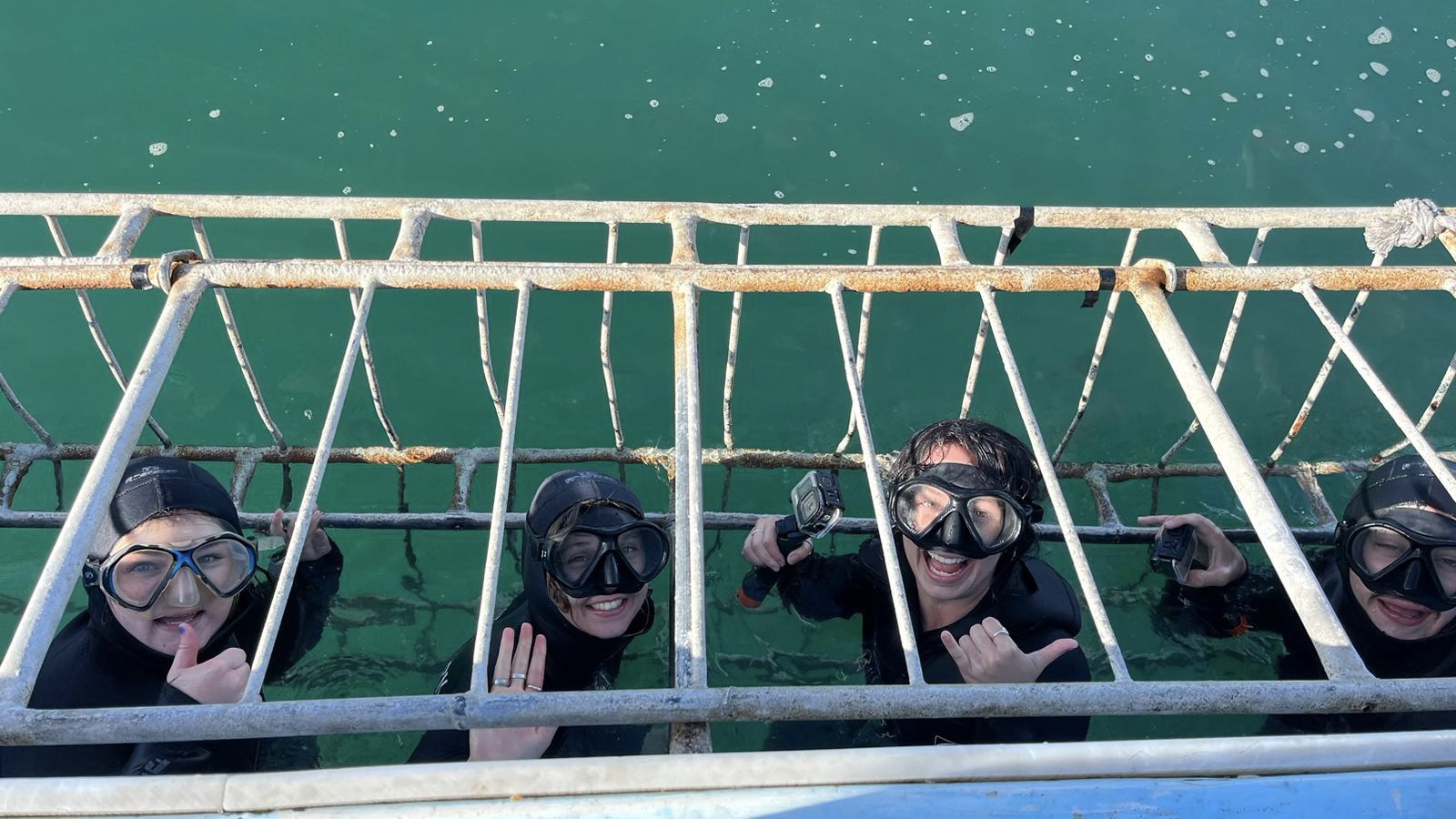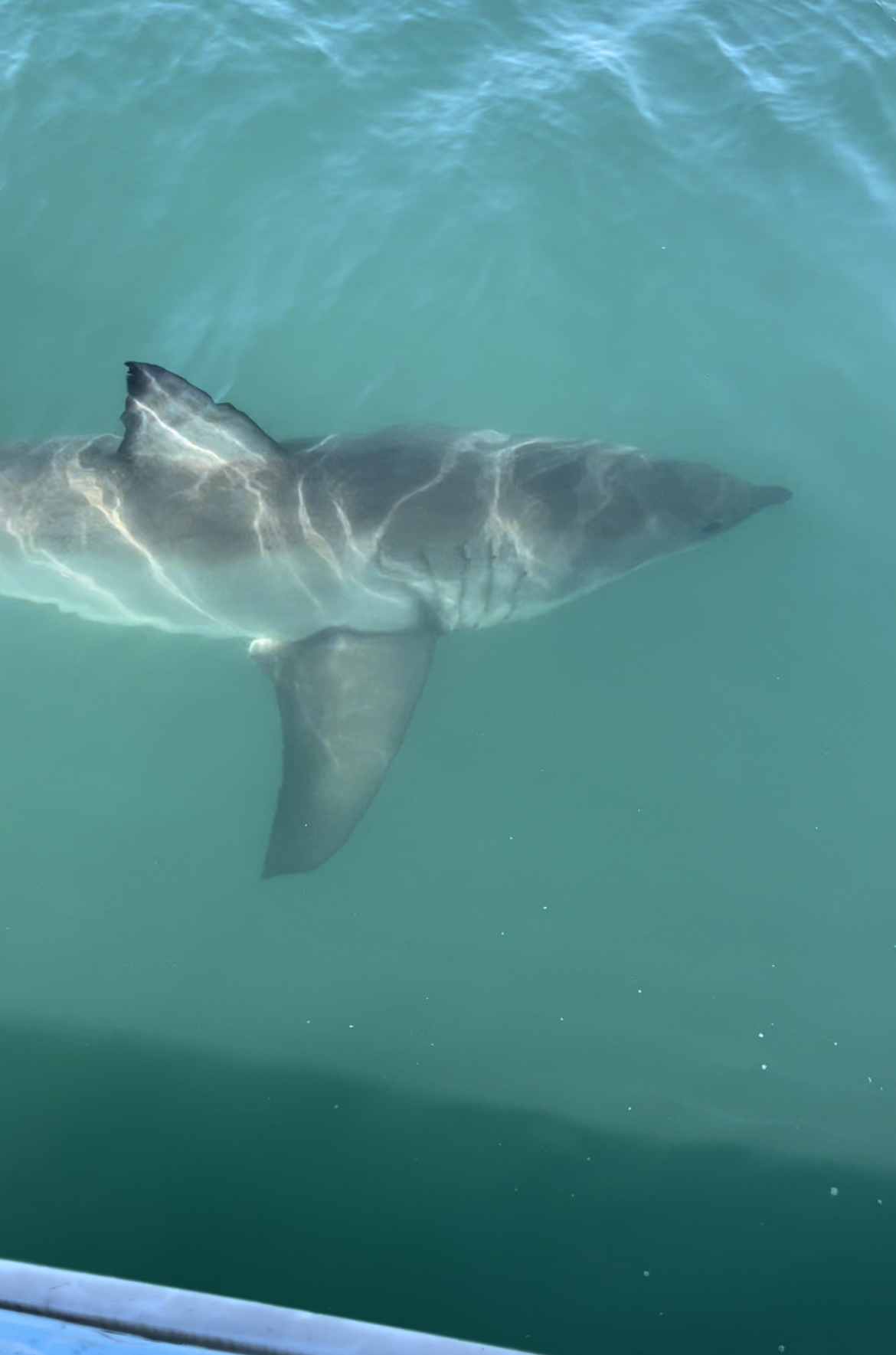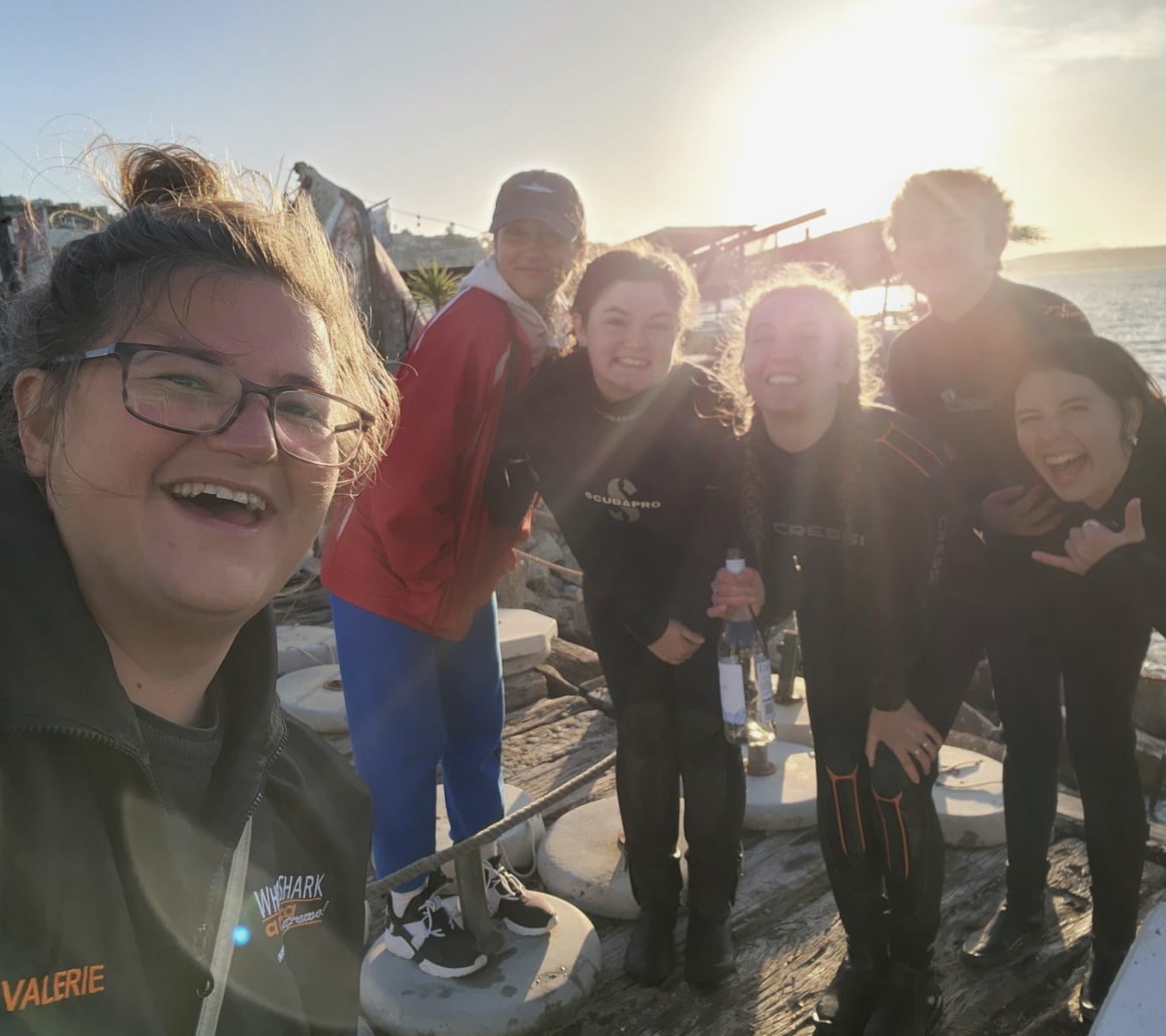
Siena Heights University’s junior biology student Taylor Eppard spent a month of her summer vacation in a 5mm wetsuit, hat, gloves, and winter coat as part of her internship in South Africa.
As a first-generation college student from Perrysburg, Ohio, Eppard has found a multitude of ways to involve herself in the Siena Heights community. From her position as an infielder for the SHU softball team to her status as a member of Beta Beta Beta, the National Biological Honor Society, she keeps herself busy throughout the school year. But at the end of her sophomore year, Eppard took a chance to fill her summer with the same busyness: she applied for a month-long internship in South Africa.
One of Eppard’s biggest goals in life is to be featured on Discovery’s Shark Week. Through her internship experience with GoDive, she is one step closer to achieving that goal. 
She learned about the internship through a family friend, whose daughter had participated in it. The internship was based in Mossel Bay, South Africa. Despite some nervousness, Eppard submitted her application. After a month of waiting, she was informed that she had been accepted. She put her deposit down and prepared for two big firsts—her first time leaving the country, and her first time flying by herself. Then, during the summer of 2023, Eppard joined students from Florida, Maine, Texas, New York, and more, for a month-long internship full of research, recording, and enriching her knowledge and understanding of marine life.
Before they began the research, Eppard completed her open-water certification and passed her advanced scuba diving course, making her an advanced scuba diver. After that, she participated in a variety of activities, including documenting nudibranch locations and species, taking care of penguins at a local rehab center, and helping on the White Shark Africa boat.
White Shark Africa is an organization that takes clients aboard for cage diving with sharks. This process began with creating a chum-slick mixture with sardine oil. The current would pull those oils outward, attracting the sharks toward the cage. Once a shark was spotted, they lowered clients into the water with 5mm thick wetsuits—any sooner than that, and they were at risk of hypothermia! Sometimes, Eppard would help the boat crew with whatever tasks they needed. Other times, she recorded data based on the number of sharks she saw. Then, on other occasions, Eppard was cage diving, seeing the sharks up close.
In addition, Eppard fish-tagged sharks—a time-sensitive process that included lifting sharks out of the water, recording their sex and size, and recording if they had been tagged before or not. For the sharks that had already been tagged, Eppard and the other interns would record the tag number and date of catch. These measurements and evaluations were done over the course of three minutes, where water had to be continuously splashed onto the gills of each shark to keep them breathing.
About two weeks into Eppard’s internship experience, something extraordinary occurred. While the other interns were spending the day in Cape Town, Eppard and two other interns stayed back and boarded White Shark Africa for a routine day on the water. While aboard, Eppard and two others witnessed and recorded an attack from two orcas upon two young Great White sharks. The orcas, named Starboard and Port, are well-known in Mossel Bay. Easily recognizable by their bent fins, Eppard and two others watched and recorded as the two orcas attacked, killed, and consumed two juvenile sharks. This was the first time this event had been witnessed in person, which generated interest from National Geographic after the internship leader alerted them to the situation.

The 30-second video taken by the interns served as the second-ever recorded predation from killer whales on sharks, making this a significant moment in marine science. The only other video of a similar situation was shot from a drone. National Geographic caught wind of the video and ended up purchasing the rights, which Eppard was compensated for given her likeness is in the video.
“If you listen in the video, if they post it anywhere, you can hear me crying in the back,” Eppard said. “There were a lot of emotions for everybody. It was really cool, but these are juvenile sharks, they’re babies—the orcas are three times their size. And you don’t want the sharks to leave the bay, because you are there to research them.”
Following the attacks, Eppard and the other remaining interns waited out on the water for six hours to spot additional sharks. The waters were still, and the sharks were gone. For the remaining two weeks of her internship, the sharks did not return to Mossel Bay. But the Siena Heights student’s time with the sharks of South Africa isn’t finished, as she has already put down her deposit to return next summer.


